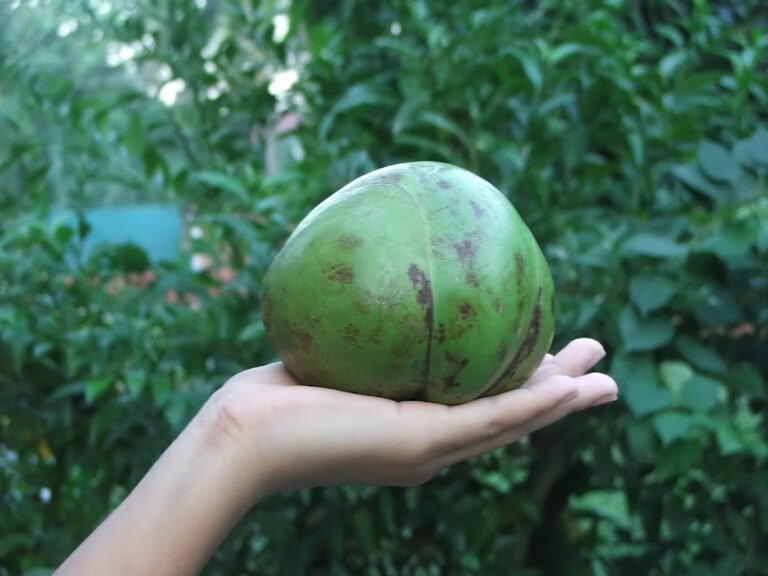Overview
The elephant apple, scientifically known as Dillenia indica, is a tropical fruit-bearing tree native to Southeast Asia and the Indian subcontinent. This tree holds cultural and medicinal significance in the regions where it grows. Its large, leathery leaves and yellow flowers contribute to its ornamental value, while its fruit, resembling a green apple, is widely used in culinary preparations and traditional medicine.
Various parts of the elephant apple tree are utilized for their medicinal properties. Its leaves are rich in astringent compounds and are often employed to treat digestive issues like diarrhea and dysentery. Additionally, the bark is known for its cooling and anti-inflammatory properties, offering relief from skin conditions. The fruit itself is a good source of Vitamin C and antioxidants, contributing to its digestive benefits in Ayurvedic medicine.
Table of Contents
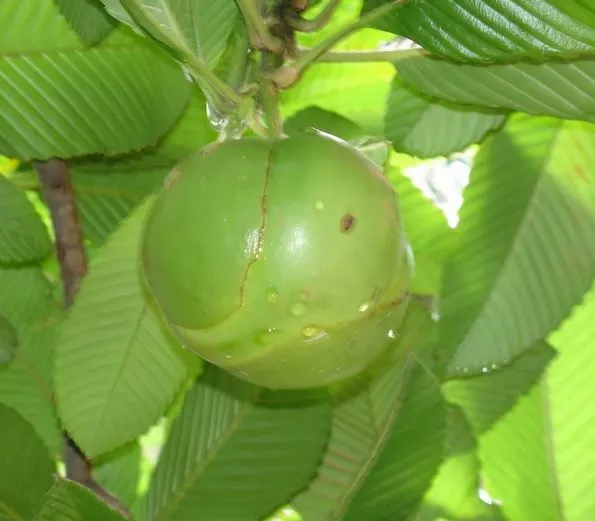
Elephant Apple In Your Language
Family of Elephant Apple
Elephant Apple in English
Synonyms of Elephant Apple
Elephant Apple in Sanskrit
भव्यम् (Bhavyam) , बहरञ्ज (Baharang), वक्त्रशोधनम् (Vaktrashodhanam) , पिच्छिलबीजम् (Pichchilabijam) , संपुटाङ्ग (Samputaanga) , कुसुमोदर (Kusumodar)
Elephant Apple in Hindi
Elephant Apple in Assamese
Elephant Apple in Odia ( Odiya)
उवा (Uav) ,चलोटा (Chalota)
Elephant Apple in Kannada
Elephant Apple in Gujarati
Elephant Apple in Telugu
Elephant Apple in Tamil
Elephant Apple in Nepali
Elephant Apple in Marathi
Elephant Apple in Bengali
Elephant Apple in Malayalam
Physical Appearance of Elephant Apple
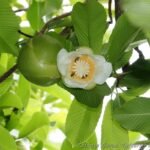


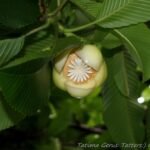

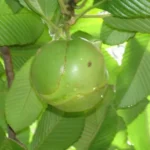


The elephant apple (Dillenia indica) is a large, tropical fruit-bearing tree with distinct physical characteristics:
- Leaves:The leaves of the elephant apple tree are large, leathery, and glossy green. They are broadly oval or elliptical in shape with prominent veins.
- Flowers:The tree produces large, solitary, fragrant flowers with five white petals. The flowers have numerous yellow stamens in the center, giving them a striking appearance.
- Fruit:The fruit of the elephant apple is round to oblong and resembles a greenish-yellow apple, hence the name. It typically measures around 5-10 centimeters in diameter. The outer skin is thick and tough, with a slightly fuzzy texture. When ripe, the fruit becomes soft and pulpy.
- Seeds :Inside the fruit, there are numerous small seeds embedded in the pulp. The seeds are brown and angular.
- Bark:The bark of the elephant apple tree is grayish-brown and deeply fissured, providing texture to the tree’s trunk and branches.
Overall, the elephant apple tree is characterized by its large leaves, fragrant flowers, and distinctive fruit, making it easily recognizable in its native habitats.
Chemical Composition of Elephant Apple
Benefits of Elephant Apple ( Uses of Elephant Apple )
Headache
- The application of crushed flowers on the forehead alleviates headaches.
Chest Ailment
- Mixing 5-10 milliliters of elephant apple fruit juice with sugar provides relief in chest ailments.
Digestive disorders
- Consumption of 5 milliliters of ripe elephant apple fruit juice provides relief in bloating.
- The use of ripe elephant apple fruit is done in the treatment of abdominal pain.
- Making a decoction of the leaves of the elephant apple tree and consuming it in a dose of 5-10 milliliters provides relief in diarrhea
- Consumption of ripe elephant apple fruit provides relief in constipation.
Skin disorders
- When the crushed flowers of elephant apple are applied, wound healing occurs
Mental illness
- Alcohol-induced: Combining 100 milliliters of juice from cucumber, dates, raisins, phalsa, and pomegranate with roasted chickpea flour and sugar alleviates quenching thirst.
- Irritability: Consuming 10-15 milliliters of juice from ripe fruit mixed with sugar provides relief in irritability.
Overall Body Disorders
- Inflammation: Applying a paste of elephant apple roots and leaves alleviates inflammation.
- Feverish: Consuming fruit juice mixed with sugar provides relief in fever.
- Severe Inflammatio: Applying oil to the leaves of the elephant apple, heating them lightly, and placing them on the inflamed area helps alleviate inflammation
Strain
- If there is strain or stiffness in the legs, apply a paste of black pepper in the juice of elephant apple bark, and then tie the leaves on top. Using it once or twice provides immense benefit.
Frequently Asked Questions
Elephant apple

